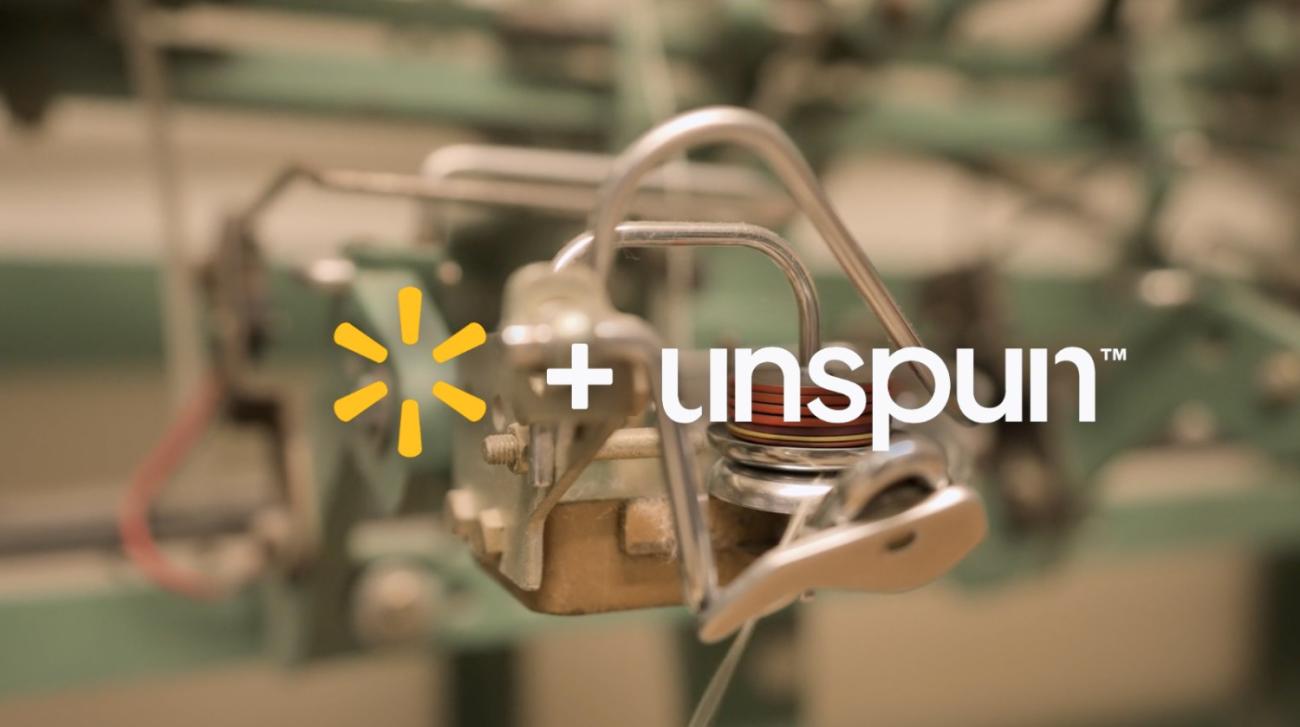Walmart pilots 3D weaving technology for apparel
Walmart Inc. seeks to reduce waste generated in the apparel production process while performing it domestically.
The discount chain is piloting first-of-its-kind 3D weaving technology from Unspun in its apparel supply chain. Unspun’s proprietary solution uses 3D capabilities to eliminate the steps of cutting and stitching fabric from apparel creation, going straight from yarn to garment.
As a result, fabric loss, discarded inventory and transport emissions are removed from the apparel supply chain, while production can be sourced locally and on demand. Walmart is testing Unspun technology in its supply chain for private label men’s chinos.
In addition to cutting waste and streamlining the production of men’s chinos, the Unspun process will remove leg seams in the 3D-woven chino, making for a stronger and lighter product, and labels will be woven into the garment instead of sewn in, creating greater comfort. Unspun’s on-demand model also allows for potential customization.
"One big problem with the clothing industry today is that because clothing is made before people want it, excess inventory has to be produced," said Beth Esponnette., co-founder and chief product officer, Unspun.
"We believe that if we can think of the next generation of apparel and build a process that’s much more automated and enables on-demand manufacturing, we can allow an industry that has, more or less, left the U.S. [to] come back," said Kevin Martin, co-founder and CTO, Unspun. "We were connected with Walmart because as we start talking about the ability to produce in the U.S. on demand, there are very few people thinking about that as actively as Walmart."
"Walmart seeking out a company like ours and collaborating in such a deep manner validates, one, the immensity of the problem, two, the potential of the technology and the solution and three, how pioneering Walmart is," said Walden Lam, co-founder and CEO, Unspun.
Walmart seeks supply chain sustainability
In another effort to cut waste and improve efficiency in its apparel supply chain, Walmart is partnering with Rubi, a company that creates natural textiles 100% from carbon emissions, to utilize on-site reactor technology in pilot projects involving Walmart's sourcing and manufacturing collaborators' infrastructure.
The output of those projects will be leveraged to produce a prototype apparel collection using Rubi's fabric made from carbon emissions.
And more than 5,900 suppliers globally are engaged in Walmart’s Project Gigaton, an initiative the discounter launched in 2017 to avoid one gigaton (one billion metric tons) of carbon dioxide from its global value chain by 2030. The retailer recently reported that its suppliers have reported projects that are expected to exceed that one billion metric ton mark six years early.
Based in Bentonville, Ark., Walmart Inc. operates more than 10,500 stores and numerous e-commerce websites in 19 countries.



